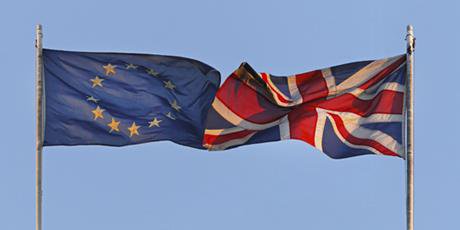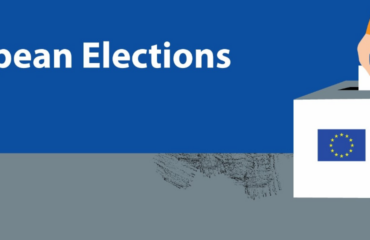#BrexitResearch: Parliament taps academic expertise

In November, Parliament threw open its doors to academics specialising in Brexit. With the implications of the Brexit vote still opaque and much debated, Parliamentary staff, MPs’ researchers and academic researchers are keen to absorb as much new information as they can. They came together in Portcullis House to learn from one another.
#Brexit: can research light the way? https://t.co/fJ4BW75KnJ #EU pic.twitter.com/kDuygtJy7n
— Commons Library (@commonslibrary) November 21, 2016
In his opening address, the Director of Library Services, Patrick Vollmer, explained that over the summer, it had quickly become apparent that Brexit could not possibly be processed in the same ‘business as usual’ manner that Parliament had processed every other topic in the post war period. It was simply too systemic, too uncertain and too long term. Thirty two separate select committee inquires on Brexit are already in progress and that is before the ‘super’ Brexit committee chaired by Hilary Benn has properly got into its stride.
Brexit: An Academic Conference was one of Parliament’s responses to the dawning realisation that Brexit presents an existential challenge to parliament and government. After a referendum campaign marred by disregard for ‘expert’ input, the organisers were motivated by the view that ‘it is more important than ever that Parliamentary scrutiny and debate is informed by robust and reliable evidence’.
The meeting showcased relevant UK academic research funded by ESRC (including the UK in a Changing Europe Initiative and our expert reviews) and gave participants the opportunity to hear different perspectives and concerns in specific policy areas including immigration, trade and the economy, climate, energy and environment. Many of the breakout sessions were packed and some had to offer repeat showings to cater for demand.
Tim Rayner spoke at the break-out session on climate and energy policy, and highlighted the risks associated with the weakening of the mutually reinforcing relationship between UK and EU policy following Brexit. Without the reinforcing effect of EU targets, critics of the Climate Change Act could be emboldened in their efforts to undermine the UK’s own, world-leading system of carbon reduction target setting. Without the UK advocating high ambition from its place on the Council, EU targets would be less likely to keep pace with UK’s, and pressure to weaken the latter would only multiply. With the success of the Paris Agreement depending on increasing mitigation ambition at five yearly intervals, this is clearly a matter for concern.
I spoke at the session on environment, fisheries and farming. I explained that the public debate before, during and after the referendum has been very economically framed, focusing heavily on the nexus between single market access and free movement of people. The trade-off (and it will be a trade-off) that is eventually struck between those two issues will have a huge effect on the UK’s environmental, agricultural and fisheries policies. In the last 40 years these policies have been very strongly shaped by EU laws and policies. But none of them appear to be in the forefront of the minds of those shaping that trade off.
I also explained that UK environmental policy is not monolithic: one sub area (e.g. water pollution) will be affected very differently to another (e.g. land use planning). These sectoral and sub-sectoral differences will matter a lot as Brexit takes shape. And given that the environment is a full devolved matter, the devolved administrations will also want to be involved at all stages of the process. Devolution will matter far more than many to in the environmental sector appear to have realised thus far.
In her closing speech, the House of Commons Librarian, Penny Young explained that “academics can help ensure that we get the best possible outcome for the British public through describing the state of knowledge, setting out comparative knowledge (whether in different territories or over time), and evaluating what’s happening as it plays out”. I could not agree more. Indeed, the event powerfully confirmed that as Brexit starts to unfold there is a strong appetite in both communities for much greater and deeper interaction.




